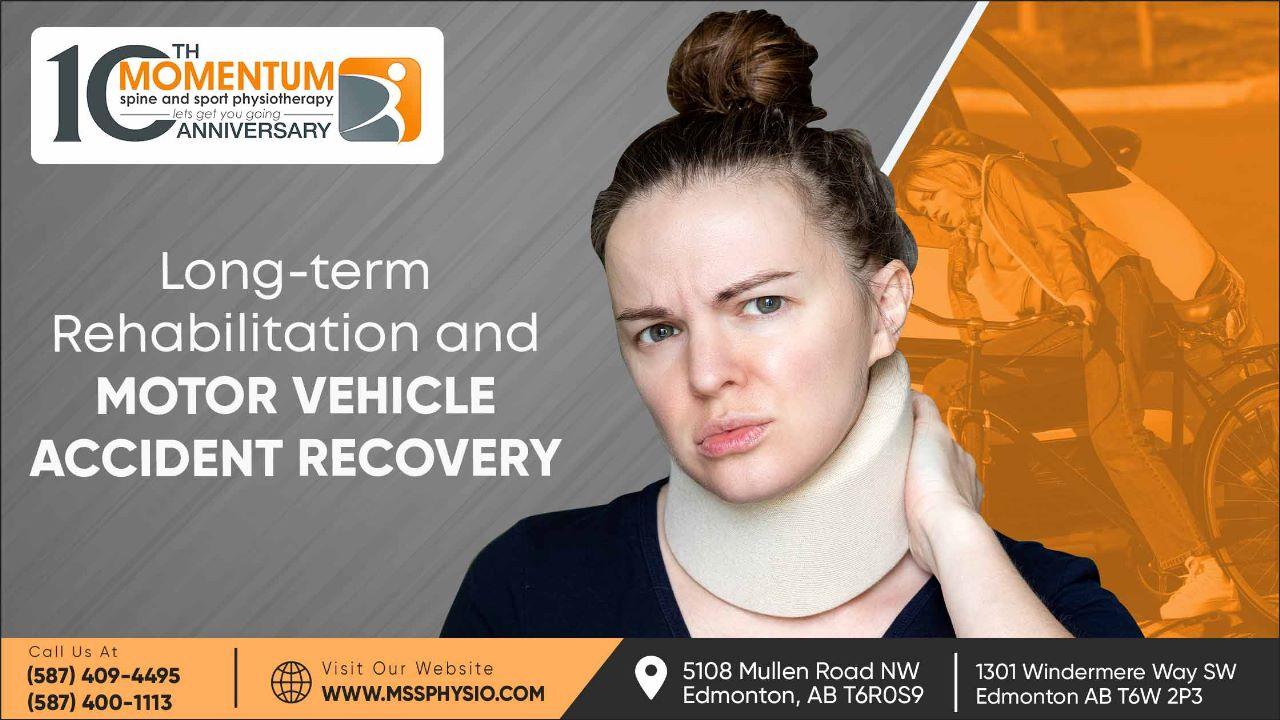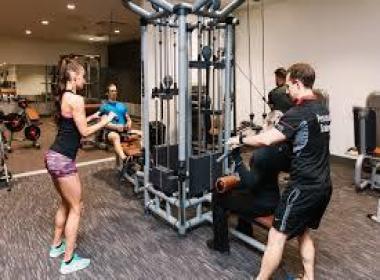
Motor Vehicle Accidents (MVAs) are life-altering events that can leave lasting physical and psychological marks. While some individuals recover within weeks or months, others grapple with lingering challenges that demand a more extended, specialized approach. Recognizing these complexities, especially in densely populated regions like Edmonton, physiotherapy services have evolved to address the long-term repercussions of MVAs. This article delves into the conditions that frequently necessitate extended rehabilitation and the vital role physiotherapy plays in this intricate journey of recovery.
The Path to Recovery After a Motor Vehicle Accident
Following a car accident, the primary concern is typically the management of immediate injuries. Emergency care often focuses on life-saving measures, pain management, and stabilization. However, once these acute issues are addressed, the journey of long-term recovery truly begins.
Long-term rehabilitation after a motor vehicle accident physiotherapy Edmonton is vital for several reasons. It helps to restore function, alleviate chronic pain, and also address potential future complications. Furthermore, it aids in returning the individuals to their daily activities, ensuring that they can live their lives as independently and comfortably as possible.
Conditions Necessitating Long-Term Rehabilitation Post Motor Vehicle Accidents
After a motor vehicle accident, the severity and type of injuries can vary greatly. Some conditions may resolve within weeks, while others can persist and demand prolonged, intensive rehabilitation. Here are conditions that might require long-term rehabilitation following a motor vehicle accident:
Traumatic Brain Injuries (TBI): While some concussions resolve quickly, a severe traumatic brain injury may disrupt cognitive, sensory, and motor functions, making prolonged rehabilitation vital.
Spinal Cord Damage: Injuries here can lead to varying degrees of paralysis, making extended physical and occupational therapy indispensable.
Compound Fractures: Extended physiotherapy is often essential when dealing with fractures in major bones like the femur or pelvis.
Whiplash and Other Neck Injuries: Chronic pain, reduced range of motion, and other complications from whiplash can require prolonged therapy.
Chronic Pain Syndromes: Sometimes, even after physical injuries have healed, victims continue to experience pain. Such chronic pain conditions can benefit from long-term pain management and physical therapy.
Amputations: Loss of a limb in an accident demands long-term rehab, including learning to use prosthetic devices and adapting to new physical challenges.
Internal Injuries: Damage to internal organs might need prolonged medical care and monitoring, along with physical therapy, to regain strength and function.
Severe Burns: Beyond initial medical attention, chronic physical therapy becomes crucial to counteract skin tightening and sustain joint movement.
Psychological Trauma: Conditions like post-traumatic stress disorder, anxiety, and depression post-accident often call for ongoing psychological support and therapy.
Chronic Pain Conditions: Disorders like Complex Regional Pain Syndrome (CRPS), which can arise post-injury, require continuous intervention.
Joint Dislocations: Particularly recurrent dislocations or those involving major joints like the shoulder or hip may require prolonged physiotherapy and possibly surgical interventions.
Post-surgical Complications: Surgeries post-accident, if followed by complications like infections, scar tissue formation, or reduced mobility, often require extended rehab periods.
Nerve Damage: Injuries resulting in nerve damage can lead to issues like numbness, tingling, or paralysis of certain areas. Rehabilitation focuses on maximizing the function of affected areas and compensating for any permanent deficits.
The essence of rehabilitation lies in enhancing the functionality of impacted areas while adjusting to any enduring limitations. Given the intricate nature of some injuries, integrated long-term rehabilitation often requires a team encompassing physiotherapists, neurologists, psychologists, and other medical experts.
Long-Term Rehab in Motor Vehicle Accident Physiotherapy: What It Offers
Long-term rehabilitation in the context of car accident physiotherapy Windermere is an intensive, holistic process aimed at ensuring survivors regain optimal function and quality of life. Here's what it offers:
Individualized Treatment Plans
Based on the specific injuries and needs of the patient, personalized treatment plans are formulated. This ensures that each patient gets the best-suited therapies and interventions.
Chronic Pain Management
Many accident survivors deal with persistent pain. Long-term rehab offers multiple techniques, such as manual therapy, electrotherapy, and specialized exercises to manage and alleviate chronic pain.
Restoration of Mobility and Strength
The rehab focuses on restoring mobility to injured areas, strengthening weakened muscles, and improving overall physical function.
Functional Re-Training
For survivors facing challenges in daily activities, functional re-training helps them re-learn essential tasks like walking, climbing stairs, or even gripping objects.
Spinal and Postural Alignment
Accidents can lead to spinal misalignments and postural issues. Through specific exercises and manual adjustments, physiotherapy aims to correct these issues, preventing long-term complications.
Scar Tissue Management
Post-accident surgeries or wounds may lead to scar tissue formation, which can restrict movement. Techniques like myofascial release help in breaking down scar tissue, promoting better flexibility and movement.
Neurological Rehabilitation
For survivors with neural impairments, specialized neurological physiotherapy aids in improving coordination, balance, and nerve function.
Emotional and Psychological Support
The trauma of an accident can leave emotional scars. While physiotherapists primarily focus on physical healing, they also play a role in offering emotional support and making referrals to mental health professionals when needed.
Gait Analysis and Training
For those who've developed an irregular walking pattern post-accident, gait analysis identifies the irregularities, and training ensures a return to a normal and safe walking pattern.
Education and Prevention
Part of the rehab process includes educating patients on how to avoid future injuries, maintain a good posture, and lead a physically active life without risking re-injury.
Support in Using Assistive Devices
For patients who need crutches, braces, or other assistive devices, physiotherapists instruct on their proper use, aiming to minimize their need eventually.
Conclusion
The journey of recovery after a motor vehicle accident is multifaceted, requiring both physical and emotional healing. Cities like Edmonton and Windermere have recognized the importance of specialized motor vehicle accident physiotherapy in Edmonton, with clinics like Momentum Physiotherapy Edmonton. Their holistic approach ensures that accident victims not only recover physically but also reclaim their mental well-being and confidence, paving the way for a brighter, healthier future.
Also read about:
The Essential Guide to Rust Proofing Protecting Your Vehicle for the Long Haul
Efficacy of Multimodal Physiotherapy in Treating Work Related Lower Back Injuries
The Best Furniture Sales In Dubai








